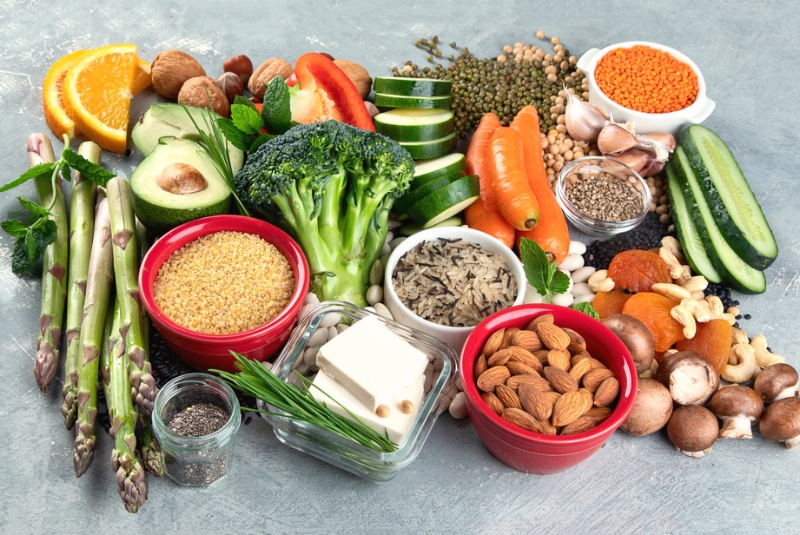Polycystic Ovary Syndrome (PCOS) is a common hormonal disorder that affects many women of reproductive age. Managing PCOS often requires a holistic approach, including dietary changes, regular exercise, and stress management. A well-balanced diet can play a key role in regulating insulin levels, improving hormone balance, and managing symptoms like weight gain, irregular periods, and inflammation. Here are some of the best diets for managing PCOS, tailored to support hormone health and overall well-being.
Low-Glycemic Index (GI) Diet
A low-GI diet focuses on consuming foods that have a slower impact on blood sugar levels. Since many women with PCOS experience insulin resistance, keeping blood sugar stable is essential. Low-GI foods help prevent insulin spikes and reduce cravings.
What to Eat:
- Whole grains like oats, quinoa, and brown rice
- Legumes such as lentils, chickpeas, and black beans
- Non-starchy vegetables like spinach, broccoli, and zucchini
- Lean proteins including chicken, fish, and tofu
- Healthy fats from avocado, nuts, seeds, and olive oil
What to Limit:
- Refined carbohydrates such as white bread, sugary snacks, and pastries
- Sweetened beverages like soda and fruit juices
The low-GI diet is sustainable and easy to incorporate into daily life, making it a great long-term option for managing PCOS symptoms and improving insulin sensitivity.
Anti-Inflammatory Diet
Chronic inflammation is often linked with PCOS and can worsen symptoms such as fatigue and hormonal imbalance. An anti-inflammatory diet focuses on whole foods rich in antioxidants, which help reduce inflammation and improve hormone health.
What to Eat:
- Fatty fish like salmon, sardines, and mackerel
- Leafy greens such as kale, spinach, and arugula
- Berries including blueberries, raspberries, and strawberries
- Healthy fats from olive oil, nuts, and flaxseeds
- Spices like turmeric and ginger, known for their anti-inflammatory properties
What to Limit:
- Processed foods high in sugar and trans fats
- Red and processed meats
Following an anti-inflammatory diet can not only improve PCOS symptoms but also support mental well-being and reduce the risk of other chronic conditions.
Mediterranean Diet
The Mediterranean diet emphasizes whole foods, healthy fats, and lean proteins, which help balance hormones and reduce insulin resistance. This diet is rich in antioxidants, fiber, and omega-3 fatty acids, which also support heart health.
What to Eat:
- Whole grains, legumes, and vegetables
- Olive oil as the primary fat source
- Nuts and seeds for healthy fats
- Lean proteins like chicken, fish, and eggs
- Fresh fruits for natural sweetness
What to Limit:
- Processed foods and refined sugars
- Saturated fats from butter and fatty meats
Studies suggest that the Mediterranean diet can help manage weight, reduce inflammation, and improve insulin sensitivity, making it a beneficial option for women with PCOS.

DASH Diet (Dietary Approaches to Stop Hypertension)
Originally designed to reduce high blood pressure, the DASH diet also helps regulate insulin levels and reduce the risk of metabolic disorders. This diet encourages balanced meals with a focus on nutrient-dense foods.
What to Eat:
- Fruits and vegetables
- Whole grains like barley and quinoa
- Low-fat dairy products
- Lean proteins such as poultry, fish, and tofu
- Nuts and seeds for snacks
What to Limit:
- Sodium and highly processed foods
- Sugary drinks and snacks
The DASH diet promotes weight management and hormone balance, which can alleviate PCOS symptoms over time.
Plant-Based Diet
A plant-based diet focuses on fruits, vegetables, whole grains, and plant-based proteins, which can help reduce inflammation and improve insulin sensitivity. This diet is also high in fiber, which supports digestion and hormone regulation.
What to Eat:
- Fruits and vegetables in a variety of colors
- Legumes and beans for protein
- Whole grains like oats, quinoa, and barley
- Plant-based proteins such as tofu, tempeh, and lentils
- Healthy fats from avocados, nuts, and olive oil
What to Limit:
- Processed plant-based foods high in sugar and refined carbs
A plant-based diet, when well-balanced, can aid in weight management, improve cholesterol levels, and help regulate menstrual cycles in women with PCOS.
Intermittent Fasting
Intermittent fasting (IF) involves alternating between periods of eating and fasting. Some women with PCOS find that intermittent fasting helps improve insulin sensitivity and reduces inflammation. A common approach is the 16/8 method, where you fast for 16 hours and eat within an 8-hour window.
What to Eat During Eating Windows:
- Whole foods like vegetables, lean proteins, and healthy fats
- Low-GI carbohydrates such as quinoa or sweet potatoes
- Hydrating fluids like water, herbal teas, and broth
What to Be Cautious Of:
- Overeating during eating periods
- Fasting for too long, which may disrupt hormone levels for some women
While intermittent fasting can be beneficial for some women with PCOS, it may not work for everyone. It’s essential to listen to your body and consult with a healthcare provider before starting IF.
Key Tips for Success
- Prioritize Protein: Protein helps regulate blood sugar and keeps you fuller for longer. Include lean proteins in every meal.
- Hydrate Well: Staying hydrated can help reduce bloating and curb cravings. Aim to drink plenty of water throughout the day.
- Practice Mindful Eating: Eating slowly and paying attention to hunger cues can help manage overeating and support weight loss.
- Limit Sugary Foods: Reducing your sugar intake is crucial for managing insulin resistance, which is often associated with PCOS.
Managing PCOS through diet involves focusing on whole, nutrient-dense foods that promote hormone balance and reduce insulin resistance. Whether you prefer a low-GI approach, the Mediterranean diet, or a plant-based lifestyle, the key is to choose a diet that fits your preferences and is sustainable in the long run.
Consulting with a healthcare provider or nutritionist can help you tailor your diet to meet your individual needs and health goals. With the right dietary choices, you can manage PCOS symptoms more effectively and improve your overall well-being.





